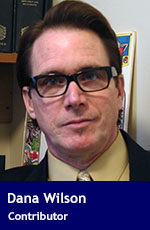 Most job candidates have unrealistic fantasies about their resume. The first fantasy is believing that their resume is exceptional and will actually be read. The second is that all resumes are given a perfunctory read.
Most job candidates have unrealistic fantasies about their resume. The first fantasy is believing that their resume is exceptional and will actually be read. The second is that all resumes are given a perfunctory read.
Now the truth. Few resumes are exceptional, and a tiny fraction of the resumes received by organizations are actually read. And if scanned and don’t have significant keywords, they’re ignored.
This points up an obvious fact of life: The resume is a flawed job-getting tool. It’s a pity, too, because the higher you go up the corporate ladder, the more important the resume becomes in the candidate-selection process.
Resumes work for about five per cent of job-searchers. These fortunate folks just happened to have perfect backgrounds. Maybe they held a few high-visibility jobs, and maybe they were in the right place at the right time. In addition, they remained in one industry riveted to one job track. In short, they created the impression of being consistent high-performers with no career blemishes.
But how many of us fall into that elite category? Not a heck of a lot. Unfortunately, the majority of Human Resource drones are not forgiving when it comes to evaluating job candidates’ credentials.
Still, resumes remain powerful door-openers, and they probably always will be. But now it’s time to do something different and take some risks into the bargain. We propose a resume-alternative letter or, in plain English, why-I-am-the-best-job-candidate-on-the-planet letter.
Who is reading your resume? by Dana Wilson
Three reasons why a letter beats a resume:
- It’s a one-of-a-kind personal statement. There is no better way to stand out from the crowd and get noticed.
- It’s a complete package, combining the best elements of both a cover letter and a resume.
- It’s ideal for all job-hunters, but especially job-hoppers, career-changers and people who haven’t worked for lengthy periods of time.
But what makes a great letter? It should never be preachy, long-winded or too familiar. It must be concise, tightly written in plain conversational English, and no longer than one and a half pages. A great letter should be a cross between a good news story and an enticing print ad. Warning:It’s not easy to write. Be prepared to put some work into it until it’s perfect.
Before you can write the letter, you must answer these two important questions:
- What is the company looking for? List the technical, professional and personal skills needed.
- What job (or jobs) in your background best sell you for this job?
Here’s where a letter beats out a resume every time. You don’t have to list every job you’ve held in the past decade, only the two or three that best sell you. And they don’t have to be sequential jobs either.
The structure of the letter is equally important. A good letter has three parts: introduction, development and closing. It ought to get the reader’s attention, make a promise and back it with compelling facts. Translated, that means the first part of your letter piques the reader’s interest; the second part sells you, citing relevant jobs and accomplishments; and the last part winds down by asking for an interview.
It’s pretty logical and straightforward, but it’s how you develop these three components that will make or break the letter.
Finally, heed these five letter-writing no-nos:
- Don’t ramble.
- Avoid hollow claims and empty statements.
- Do not include personal information, such as marital status, religion, hobbies or membership in organizations.
- Never bad-mouth a former employer; and
- Do not mail a letter to a title. Get a name. (Hard to believe, but it’s done all the time).
But you’re not off the resume hook, however. Old habits are hard to break, and most companies still like to see resumes, even if they pale in comparison with your brilliant alternative letter. I propose a terse one-page resume that is similar to the standard template most actors follow. A standard actor’s resume lists parts he’s played, whether on stage, film, TV or radio; where he performed them; awards; and special skills or training. These resumes seldom list dates, because booking and casting agents are only interested in accomplishments.
Dana Wilson is a freelance writer living in Edmonton, Alberta.
The views, opinions and positions expressed by columnists and contributors are the author’s alone. They do not inherently or expressly reflect the views, opinions and/or positions of our publication.


